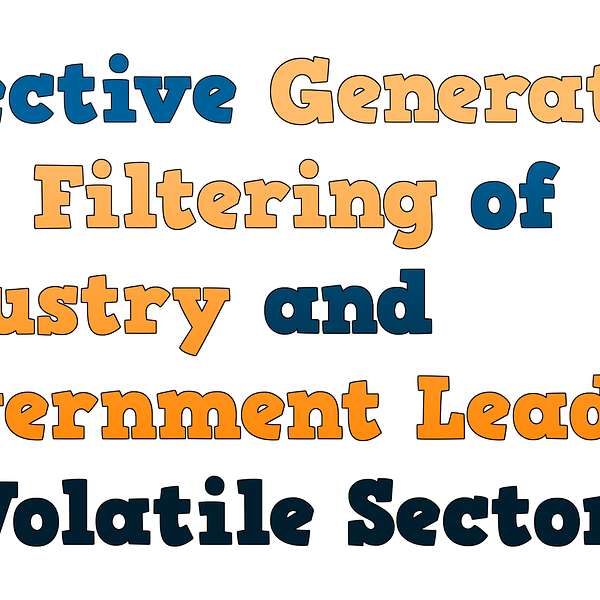
Hacking Academia
An ever-growing series of tutorials (with detailed notes) filled with practical, experience-driven tips and tricks for being effective, happy and successful in modern day academia and related careers.
Hacking Academia
Effective Generation and Filtering of Industry and Government Leads in Volatile Sectors
Most academics and researchers in a university context will engage in some sort of work with industry, government or public organisations at some stage in their career. However, how this is done can vary hugely: the experiences of a biotechnologist engaging with industry in the agriculture sector can be worlds apart from that of a computer scientist engaging with the technology sector.
One of the key variations is in the volatility of the field you’re working in – are the companies, and the people you’re interacting with, typically still there a decade later, or does everything change every 6 months? In this video, I’m focus on a bunch of practical advice on how to effectively generate and process leads in rapidly moving and volatile industries, so that this sort of activity becomes a fulfilling positive addition to your career, instead of a traumatising drain on it! In particular, I cover three key concepts: that this enterprise is very much a numbers game, that effective filtering and referrals are key, and explain the role of timelines and uncertainty.
Please reshare if useful 🙏
🕒 Timestamps are as follows:
📌 (0:00) Introduction to Effective Engagement
📌 (0:20) The Training Situation
📌 (0:33) Experiences Vary Hugely Based on Sector
📌 (0:53) Stable Versus Volatile Sectors
📌 (1:23) Video Overview – Practical Advice for Engagement
📌 (1:39) Three Key Concepts
📌 (1:52) Key Concept: It’s A Numbers Game
📌 (2:30) Maximizing Only Credible Leads
📌 (2:40) Doing It Yourself Doesn’t Scale
📌 (2:59) Two Key Solutions for the Scaling Challenge
📌 (3:13) Working With Your Industry Engagement Leads
📌 (4:17) Co-Opting Your Colleagues
📌 (5:02) Key Concept: Lead Filtering
📌 (5:14) Don’t Exhaust Yourself For the Wrong Opportunity
📌 (5:40) Filtering by Expertise Fit
📌 (5:49) Three Fit Types: Not Suitable, Competent, Perfect
📌 (6:12) Perfect Fit Projects Provide More Capacity Margin
📌 (6:31) There Typically Aren’t Enough Perfect Fit Projects
📌 (6:43) Limited Timelines Can Change Your Filter
📌 (7:18) Filtering Based on the Development Stage
📌 (7:29) Three Stages of Development
📌 (7:32) Early Stage Conceptual Ideas
📌 (8:16) Well Developed Ideas With a Detailed Plan
📌 (8:51) Joining Existing Projects
📌 (9:18) Do Due Diligence on Existing Opportunities
📌 (9:37) Your Appetite May Be Different to Others
📌 (9:52) Idea Stage Often Determines Input Level
📌 (10:06) Timing: Engagement Can Pay Off Much Later
📌 (10:58) An Increased Reputational Focus On Prior Work
📌 (11:23) You Can’t Force One Opportunity to Be Successful
📌 (12:11) You Can Successfully Engage In Fast Moving Fields